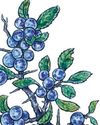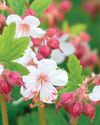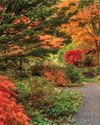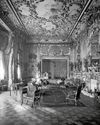
OVER the past century, our Kings and Queens have made their own mark on British gardens and gardening. Queen Mary, consort of George V, took great delight in pulling ivy away from tree trunks when she stayed at Badminton House in Gloucestershire during the Second World War. George VI was keen on rhododendrons, working with Sir Eric Savill to develop the Savill Garden in Windsor Great Park and Sir Geoffrey Jellicoe to design a series of garden rooms at Sandringham in Norfolk. His widow, Queen Elizabeth, created her own sanctuary, after the King’s death, at the Castle of Mey in Caithness and closer to home at Royal Lodge in the Great Park, where she spent her weekends.
Elizabeth II and the Duke of Edinburgh left their own stamp on the gardens at Windsor Castle where, as Prince Philip informed me, he ‘redesigned the East Terrace, including the fountain in the middle’, and supervised the laying out of a ‘sitting-out garden’ beneath the terrace walls. At Balmoral, he ‘redesigned almost the entire garden, except for the formal rose beds directly west of the castle’.
All these endeavours contributed to the personal enjoyment of the sovereigns and their consorts, but they also emphasised the importance of gardens and gardening, regardless of rank and stature. Gardening has always been a great leveller and, whether the participant lives in a castle with thousands of acres or in rented accommodation with a nearby allotment, growing plants to enrich our lives both mentally and physically and, in so doing, benefiting the natural world is undeniably life-enhancing.
Diese Geschichte stammt aus der April 26, 2023-Ausgabe von Country Life UK.
Starten Sie Ihre 7-tägige kostenlose Testversion von Magzter GOLD, um auf Tausende kuratierte Premium-Storys sowie über 8.000 Zeitschriften und Zeitungen zuzugreifen.
Bereits Abonnent ? Anmelden
Diese Geschichte stammt aus der April 26, 2023-Ausgabe von Country Life UK.
Starten Sie Ihre 7-tägige kostenlose Testversion von Magzter GOLD, um auf Tausende kuratierte Premium-Storys sowie über 8.000 Zeitschriften und Zeitungen zuzugreifen.
Bereits Abonnent? Anmelden

Kitchen garden cook - Apples
'Sweet and crisp, apples are the epitome of autumn flavour'

The original Mr Rochester
Three classic houses in North Yorkshire have come to the market; the owner of one inspired Charlotte Brontë to write Jane Eyre

Get it write
Desks, once akin to instruments of torture for scribes, have become cherished repositories of memories and secrets. Matthew Dennison charts their evolution

'Sloes hath ben my food'
A possible paint for the Picts and a definite culprit in tea fraud, the cheek-suckingly sour sloe's spiritual home is indisputably in gin, says John Wright

Souvenirs of greatness
FOR many years, some large boxes have been stored and forgotten in the dark recesses of the garage. Unpacked last week, the contents turned out to be pots: some, perhaps, nearing a century old—dense terracotta, of interesting provenance.

Plants for plants' sake
The garden at Hergest Croft, Herefordshire The home of Edward Banks The Banks family is synonymous with an extraordinary collection of trees and shrubs, many of which are presents from distinguished friends, garnered over two centuries. Be prepared to be amazed, says Charles Quest-Ritson

Capturing the castle
Seventy years after Christian Dior’s last fashion show in Scotland, the brand returned under creative director Maria Grazia Chiuri for a celebratory event honouring local craftsmanship, the beauty of the land and the Auld Alliance, explains Kim Parker

Nature's own cathedral
Our tallest native tree 'most lovely of all', the stately beech creates a shaded environment that few plants can survive. John Lewis-Stempel ventures into the enchanted woods

All that money could buy
A new book explores the lost riches of London's grand houses. Its author, Steven Brindle, looks at the residences of plutocrats built by the nouveaux riches of the late-Victorian and Edwardian ages

In with the old
Diamonds are meant to sparkle in candlelight, but many now gather dust in jewellery boxes. To wear them today, we may need to reimagine them, as Hetty Lintell discovers with her grandmother's jewellery